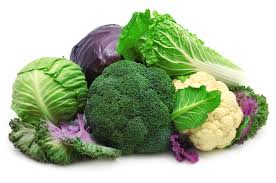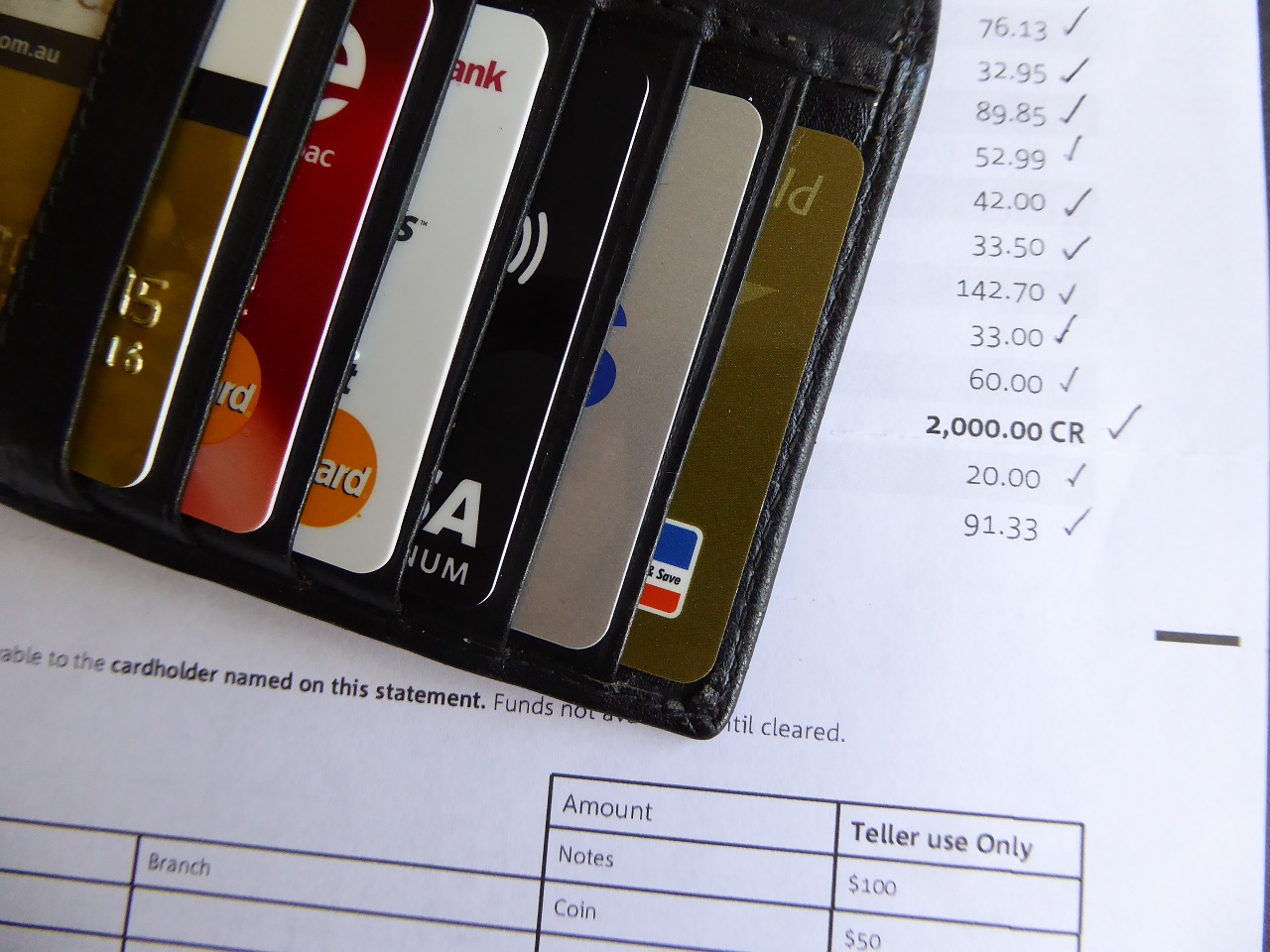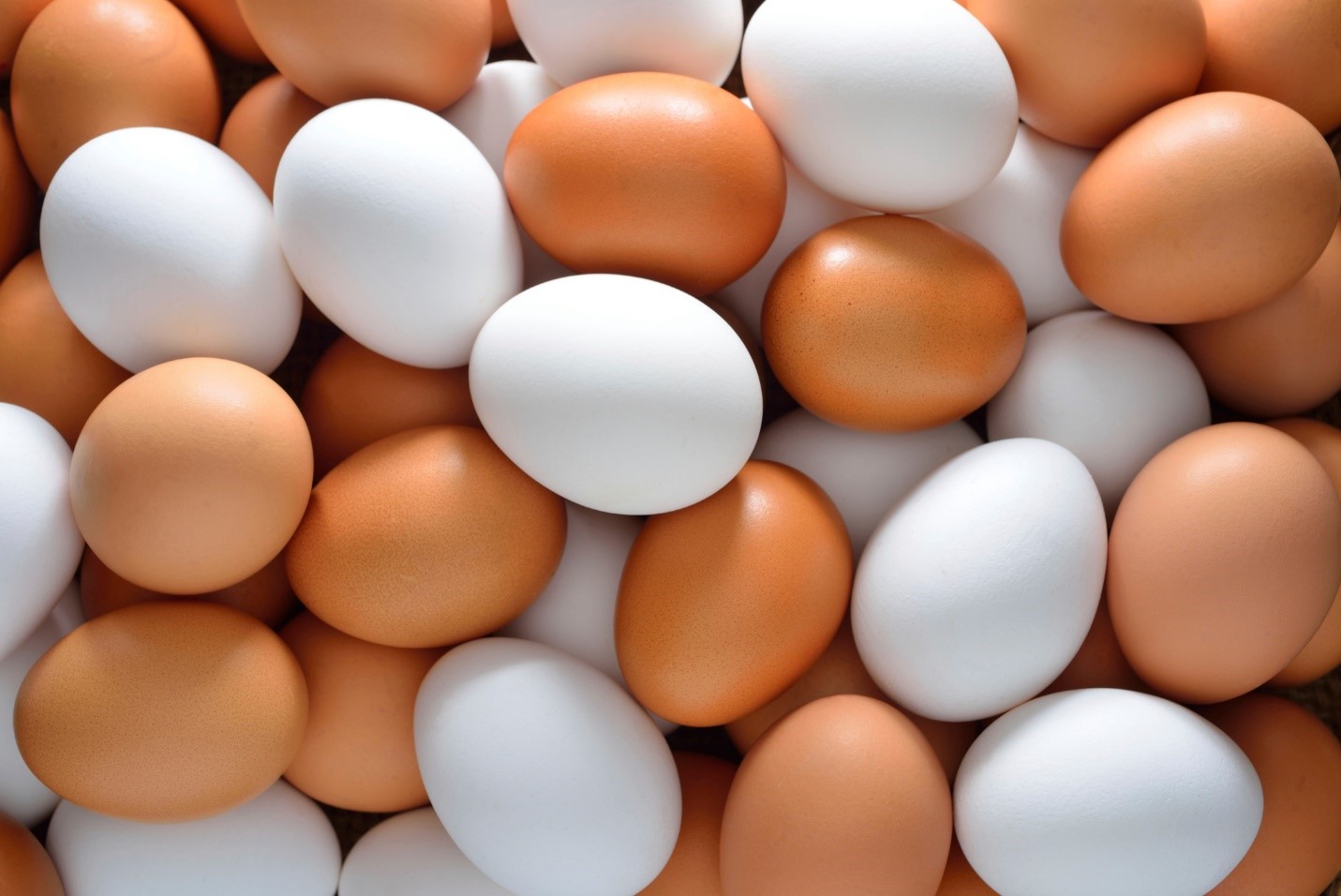by Heidi Copeland | Apr 1, 2016
Can you believe Florida fresh fruits and veggies are supplied to 160 countries around the globe! Particularly abundant right now are the vegetables commonly referred to as cruciferous vegetables. (However, many scientists are starting to favor the term brassica vegetables over cruciferous vegetables) These nutritious veggies are ones that you will want to eat on a regular basis as they are bursting with both macronutrients and micronutrients.
The Florida Department of Agriculture and Consumer Services lists, cabbage, cauliflower, and radishes as being abundant in April for world production. Locally though, growers are turning out broccoli, cabbage, cauliflower, collard greens, kale, kohlrabi, mustard, rutabaga, turnips, bok choy, Chinese cabbage and arugula, as well as radishes.
 There are many simple ways to include cruciferous/brassica vegetables into your diet.
There are many simple ways to include cruciferous/brassica vegetables into your diet.
- Eat them raw! Raw vegetables can make a delicious, crunchy snack especially when served with a low-fat dip.
- Use in recipes! Make slaw, soup or salad, main dishes and even condiments!
- Substitute! Did you know steamed, mashed cauliflower can replace mashed potatoes? Or that coarsely grated cauliflower can replace rice? Folks have even substituted a cauliflower mixture as pizza crust! (okay, it might be a stretch but it does taste good)
Shopping, preparing and storing
- Cruciferous/brassica vegetables are typically inexpensive and can also be found year-round, fresh or frozen.
- Store raw, uncut and unwashed vegetables in the crisper drawer of your refrigerator for up to five days.
Cooking methods:
There are three factors affecting nutrient loss when you cook cruciferous/brassica vegetables:
- Temperature
- Time
- Amount of water used.
The cooking method that best retains nutrients is one that cooks quickly, heats food for the shortest amount of time, and uses as little liquid as possible.
- Using the microwave with a small amount of water essentially steams food from the inside out keeping more vitamins and minerals than almost any other cooking method. http://www.health.harvard.edu/
- Steam vegetables over a small amount of boiling water until a fork can just barely pierce it. (You can save the nutrients that are lost when steaming cauliflower by using the leftover water in a soup)
- Braise, bake or broil, stir-fry or sauté
Cruciferous/brassica vegetables are very unique in that the flower, the root, the stalk and even the leaves can be eaten depending on which plant you are eating.
Try a cruciferous/brassica vegetable a new way or even try a new cruciferous/brassica vegetable a traditional way!
Cauliflower Salad
(Or even use a combination of cauliflower and broccoli and kohlrabi)
Ingredients
2 Tablespoons sliced or diced onion, red, green or white
1 head of cauliflower – including the tender stems, cut into small pieces (or even cut into small florets)
1 Tablespoon sugar
1 Tablespoon vinegar (red wine, white wine, apple cider, or rice wine)
¼ cup mayonnaise
½ cup dried cranberries (or favorite dried fruit)
Salt and pepper to taste
In a large bowl, whisk the sugar, vinegar and mayonnaise together. Season with salt and pepper. Toss in the onion, cauliflower and cranberries and stir until well coated. Eat it right away or savor for a few days.
http://www.freshfromflorida.com/content/download/16796/269931/04April.pdf
by sbouie | Mar 30, 2016
 Home ownership means different things to different individuals.
Home ownership means different things to different individuals.
- “We feel that owning our own house is a sign of wealth.”
- “We would purchase a house so our kids would be in the right school zone.”
- “It was property we could sell once the children had moved out. We could down size and sell the house and use the funds toward retirement.”
You might purchase a home for one or all of the reasons listed above. Some people want the comfort but not the issues of lawn maintenance and repairs. Many of us have very busy schedules and do not want the hassle of maintenance.
In some cities you have the rising cost of leasing an apartment. It can be cheaper to purchase a house than rent an apartment. Always factor in utilities, lawn care, repairs, insurance and taxes. If you are buying your house, the insurance and taxes can be included with the mortgage.
Keep in mind that the interest you paid on your mortgage and taxes can be claimed on your income taxes. Your rent payment cannot be claimed on your income taxes. Equity also builds up in your home. Even if you are renting you should have renter’s insurance.
When renting, you have the freedom of movement once your lease has expired. If you own your house, you can rent it or sell it, but you would need to move.
Owning your home gives you freedom to decorate your home as you please. If you do not abide by the restrictions of your apartment lease, you could forfeit your deposit.
Whether you decide to own or rent is your personal choice. Make the right decision for you.
by Ginny Hinton | Mar 24, 2016
 Oliver Wendell Holmes, Jr. once said, “The greatest thing in the world is not so much where we are, but in which direction we are moving.” That saying holds true when it comes to our health and our finances.
Oliver Wendell Holmes, Jr. once said, “The greatest thing in the world is not so much where we are, but in which direction we are moving.” That saying holds true when it comes to our health and our finances.
Health and personal financial issues affect millions of Americans. We struggle with epidemic obesity rates, over 79 million Americans have “pre-diabetes”, debt and bankruptcy filings remain high and millions of Americans live on the “financial edge” with less than the recommended three months’ emergency fund set aside for the future. Problems that develop gradually soon become overwhelming.
Many of us, when faced with the need to change, see our problems as unbeatable and “freeze” instead of moving forward. It is true that there is no easy way to lose weight, gain wealth or become debt-free. Even drastic fixes like weight loss surgery or bankruptcy come with huge risks. So, what is the secret?
According to Former HHS Secretary Tommy G.Thompson, small steps are the key! Mr. Thompson stated, “Consumers don’t need to go to extremes – such as joining a gym or taking part in the latest diet plan – to make improvements to their health. But they do need to get active and eat healthier.” No step is too small to get started and you can never be too early or too late. Examples might include walking during your lunch break, cutting out 100 calories a day, saving the change you accumulate each day or tracking your spending for a month. Anything you do daily over a period of time will soon become a habit, or an “automated” behavior. When your healthy behaviors become automated – no matter how small – you’ve just taken a step toward physical and/or financial wellness.
In the end, your health is in your hands. Set realistic goals, take small steps to reach them, learn from the obstacles and believe that you can achieve. And remember, “In the end, the only people who fail are those who do not try.” – David Viscott
Adapted from Small Steps to Health and Wealth, B. O’Neill and K. Ensle, 2013.

by Judy Corbus | Mar 15, 2016

Photo credit: pixabay.com
In spring cleaning mode? If so, now is the perfect time to de-clutter your financial life. Organizing important papers as well as purging unnecessary ones will reduce paper clutter and stress and help you to locate what you need when you need it. Let’s get started!
Store home files as follows:
- Current files – day-to-day records. These include bank account information, bills and receipts, loan agreements, and certain medical information. For a list of suggested categories, check out Financial Recordkeeping: Organizing Your Financial Life.
- Permanent files – on-going records used infrequently, such as employment and education records and health benefit information.
- Dead storage – anything you feel uncomfortable discarding, such as old tax records or real estate you’ve sold. These can be stored in less accessible drawers or boxes.
Discard the following monthly: Credit card, grocery, ATM, and debit card receipts after they appear on the statement unless they are needed for taxes, business, or proof of purchase.
Keep these items for one year:
- Paycheck stubs – save until you compare with your W-2 and Social Security earnings statements then shred.
- Canceled checks and bank statements – shred unless needed for tax purposes or can be retrieved online.
- Quarterly investment statements – double-check with year-end statements then shred.
How Long to Keep Tax Records
The IRS recommends 3-6 years for income tax records, worksheets, and documentation of deductions. Keep records for as long as needed for administration of the IRS code. Tax records often are useful in situations where financial history is relevant.
Do Not Toss:
- Birth and death certificates, adoption decrees
- Marriage licenses and divorce decrees
- Social Security cards
- Military discharge papers, including spouse, even if deceased
- Immigration documents
- Pension plan information from current and former employers
- Estate planning documents
- Life insurance policies
- Titles for property still owned
De-clutter a section at a time – if the task seems overwhelming, work at it 15 minutes a day until you’re finished. Then, enjoy less stress with organized files!
Adapted from De-Clutter Your Financial Life, Julie England, UF/IFAS Extension Lake County, and Lisa Leslie, UF/IFAS Extension Hillsborough County, 02/16.
by Marie Arick | Mar 15, 2016

Earth Day is honored around the world on April 22, with many festivals, activities and events being held in in the weeks prior. April 22 marks Earth Day. Help build a better future and preserve Mother Earth by committing to protect our environment year-round.
The origin of Earth Day is linked to the 1969 Santa Barbara, California oil spill. Wisconsin Senator, Gaylord Nelson, envisioned protecting the nation’s environment after the massive oil spill in California. This led to a movement to increase awareness of environmental pollution. Nelson, partnered with Congressman Pete McCloskey and Denis Hayes of Harvard University to put the Earth Day plan in motion. Earth Day, April 22, 1970 was the catalyst to increase environmental awareness and led to the establishment of the Environmental Protection Agency (EPA). Hayes further expanded the Earth Day movement in 1990 into a global event.
Why do we need an Earth Day? Because it works! Earth Day broadens the base of support for environmental programs, rekindles public commitment and builds community activism around the world through a broad range of events and activities.
What can I do for Earth Day? The possibilities for getting involved are endless! Volunteer. Change a habit. Plant a garden. Do something nice for the Earth. April 22 marks Earth Day. Mark your calendar to attend an event or do something positive to preserve your little piece of Mother Earth.
A few Earth Day Events
Earth Day Bay County, April 9, 2016 10 am to 4 pm at McKenzie Park. The University of Florida’s Museum of Natural History will host an Earth Day Exploration on Saturday, April 16, 2016 from 10 am to 3 pm. Earth Day Pensacola, April 23, 2016 10 am to 4 pm. .

by sbouie | Mar 14, 2016
This is the time of year when people hear “Easter,” they think of Easter egg hunt. Eggs can be used for more than just an Easter Egg Hunt, although Easter is when you can purchase eggs at their lowest price.
eggs at their lowest price.
While eggs often are eaten for the protein value, they also contain other nutrients. Eggs provide vitamin A, riboflavin, minerals, and other vitamins. The yolk contains saturated fat and cholesterol, which is a concern for those with high cholesterol.
There is a vast variety of egg substitutes* on the market if you need to avoid the cholesterol. Some examples are:
o Egg whites ®
o Egg Beaters ®
o No eggs ®
o Egg Replacer ®
o Vegan Egg Replacer ®
o Gluten-free Egg Substitute ®
Why eggs? Because they are healthy – whether you select the real thing or a substitute.
*The use of trade names in this article is solely for the purpose of providing specific information. UF/IFAS does not guarantee or warranty the products named, and references to them in this article does not signify our approval to the exclusion of other products of suitable composition.
 There are many simple ways to include cruciferous/brassica vegetables into your diet.
There are many simple ways to include cruciferous/brassica vegetables into your diet.






